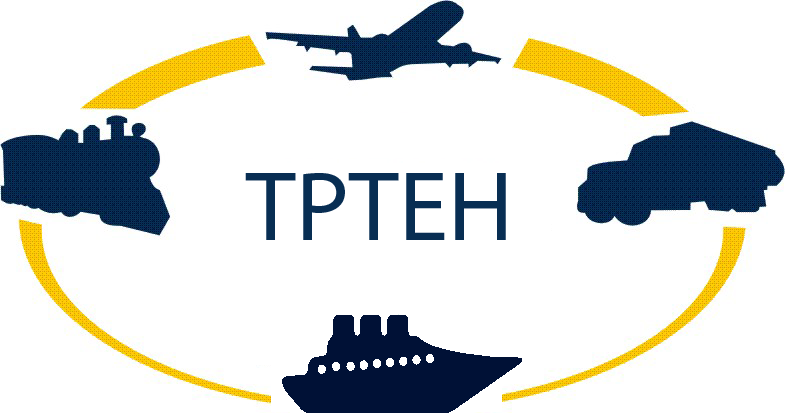1 – Abbas K. A. and El-Maksoud A. A. (1999) Development of a Generic Analytical Framework for Assessing Impact of Inefficiencies on Bus Operation in Cairo. Scientific Bulletin, Faculty of Engineering, Ain Shams University, Volume 34, No. 1, Part 1: Architecture and Civil Engineering. Faculty of Engineering, Ain Shams University, Cairo, Egypt. pp. 83-109.
Abstract:
There is a tangible move, across cities of the world, towards achieving efficiency gains in the bus industry. The main bus transit system in Cairo is being provided by Cairo Transport Authority (CTA). The paper starts by reviewing some important indicators for buses operated by CTA. This research presents a classification of generic types of inefficiencies identified in public bus operation, namely; inefficiencies causing cost incurring, inefficiencies causing revenue loss, and inefficiencies causing cost incurring and revenue loss. The paper specifically identifies, categorizes and reviews those inefficiencies, which are reported in CTA annual statistical reports. These reports show losses in operation time being mainly attributed to four main causes, namely Engineering Failures, Operational Inefficiencies, Accidents’ occurrence, and Force Majeure incidents. The main objective of this research is to develop a generic analytical framework for assessing the impact of these types of inefficiencies on public bus operation. In structuring this framework, several statistical relations, based on a priori causalities, are estimated. The paper concludes by presenting a demonstration of the utilization of the above relationships, within the developed analytical framework, for CTA. This takes the form of conducting sensitivity tests that are meant to explore impact of potential inefficiencies in terms of time and revenue lost as a result of varying the extent of services provided by CTA.
This article may be used for research, teaching and private study purposes. Any substantial or systematic reproduction, re-distribution, re-selling, loan or sub-licensing, systematic supply or distribution in any form to anyone is expressly forbidden.
2 – Abbas K. A. (1996) A Generic System for Planning Activities in a Bus Transit Company. Proceedings of 24th European Transport Forum Organised by Planning and Transport Research and Computation (PTRC), Seminar F: Public Transport Planning and Operations, London, UK
Abstract:
Abstract:
Managers of bus transit companies have the task of managing their companies’ resources (financial, human, material, fleet of vehicles) in an efficient and effective manner. This task is becoming more difficult due to tangible pressures, mainly in the form of limited available funds and shortages in subsidies resulting from budget deficits and financial cuts. Planning of bus transit activities is becoming an increasingly complex and sophisticated task. The various elements involved in managing a transit company call for coordinated approaches for future planning. Reorientation is needed in the planning of bus transit activities from the standard piecemeal approach to the holistic system approach. Efforts to develop an integrated system that considers within its framework the planning of the main activities involved in the management of a transit company ought to be pursued. This paper presents a generic procedure for planning bus transit activities. This procedure is developed within a system approach framework. It contains eight subsystems namely: a vehicle maintenance management system, a vehicle operation management system, a new vehicles procurement management system, frequency setting, cost accounting, fare determination and subsidy computation, travel demand prediction and performance evaluation. The proposed planning approach provides a better understanding and insight into the inter- and intra- structural feedback relationships that exist among the various components involved in the overall management of a bus transit company. It is meant to achieve an integrated tactical planning of activities constituting the management of a bus transit company. It is also meant to provide practical and credible support to transit managers, so that they can make more rational and informed planning decisions. Decisions should be targeted towards achieving an efficient and effective management of bus transit activities, so as to sustain and maximize benefits obtained from resource utilization.
This article may be used for research, teaching and private study purposes. Any substantial or systematic reproduction, re-distribution, re-selling, loan or sub-licensing, systematic supply or distribution in any form to anyone is expressly forbidden.
3 – Abbas K. A. (2003) Modelling Bus Transit Operation: A Basis for Budgeting and Fare Determination. In Proceedings of European Transport Conference, Seminar on Innovative Methods in Transport Analysis, Planning and Appraisal: Public Transport Models. Strasbourg, France.
Abstract:
Transit planning and management is a combination of art and science. The proposed research aims at investigating and developing the rules, practices, procedures, steps and policies involved in the planning and management of a bus transit company. This is followed by integrating these rules and procedures, as mathematical formulations and algorithms, within a model that simulates the interactions among the components of the bus transit system. The developed model consists of several interrelated modules, the bus maintenance, operation, procurement, fare determination and cost accounting modules, which represent the supply aspects of bus industry. In addition, the demand analysis module, representing the demand side of bus industry. The model is meant to provide better understanding and insight into the feedback relationships that exist between components forming the supply parameters of bus transit as well as affecting the demand. Overall, such model is needed to provide practical and credible support to transit managers to explore a wide variety of alternative scenarios and examine their effects on the budget and performance of a company, so that they can make more rational and informed planning decisions. A scenario can be composed of the user specification of certain relationships between model parameters, selection of policies and specification of values for key input parameters. The applicability of the model as a tool that can support the planning and budgeting decisions of bus managers is fully demonstrated and evaluated using a case study.
This article may be used for research, teaching and private study purposes. Any substantial or systematic reproduction, re-distribution, re-selling, loan or sub-licensing, systematic supply or distribution in any form to anyone is expressly forbidden.


